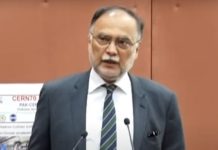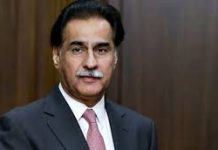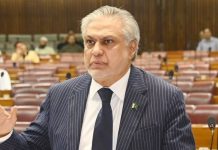ISLAMABAD: The Supreme Court of Pakistan on Tuesday adjourned the hearing of petitions challenging the SC (Practice and Procedure) Act till tomorrow 11 am (October 11).
The full court bench, led by Chief Justice Qazi Faez Isa and consisting 15 judges, heard the case. The hearing was broadcast live on state-run PTV, allowing the nation to witness the proceedings and the arguments presented by the lawyers.
After assuming charge as the chief justice, CJP Isa had ordered the hearing to be live-streamed and had implicitly vacated the April 13 suspension of the enforcement of the SC Practice and Procedure Act.
At the previous hearing, Chief Justice Isa observed that Parliament must not be hampered from doing something good merely because it lacks two-thirds majority.
During today’s hearing, MQM-P’s lawyer Faisal Siddiqui presented arguments against the Act, claiming that parliament cannot make laws that restrict the Supreme Court from making its own rules.
This argument underlines the core issue at stake – the balance of power between the legislative and judicial branches of the government.
The CJP Isa, in response, asked questions and sought clarification regarding the definition of law and the extent of the Supreme Court’s jurisdiction.
Justice Minallah observed that the SC’s jurisdiction can be extended in line with a law and added that the only limitation related to the top court’s jurisidction was mentioned in “entry 55”.
Justice Shah asked the lawyer to explain as to how “entries” allowed to increase scope of Article 184(3) of the Constitution.
The law
The legislation limits the powers of the Chief Justice of Pakistan to take suo motu notice and to constitute benches on his own. It gives the power of taking suo motu notice to a three-member committee comprising the chief justice and two senior most judges of the court.
SC practice and procedure act also aims to have transparent proceedings in the apex court and includes the right to appeal.
The PDM government had on April 10 passed the bill in the joint session of parliament after President Arif Alvi had returned the bill. –Agencies






